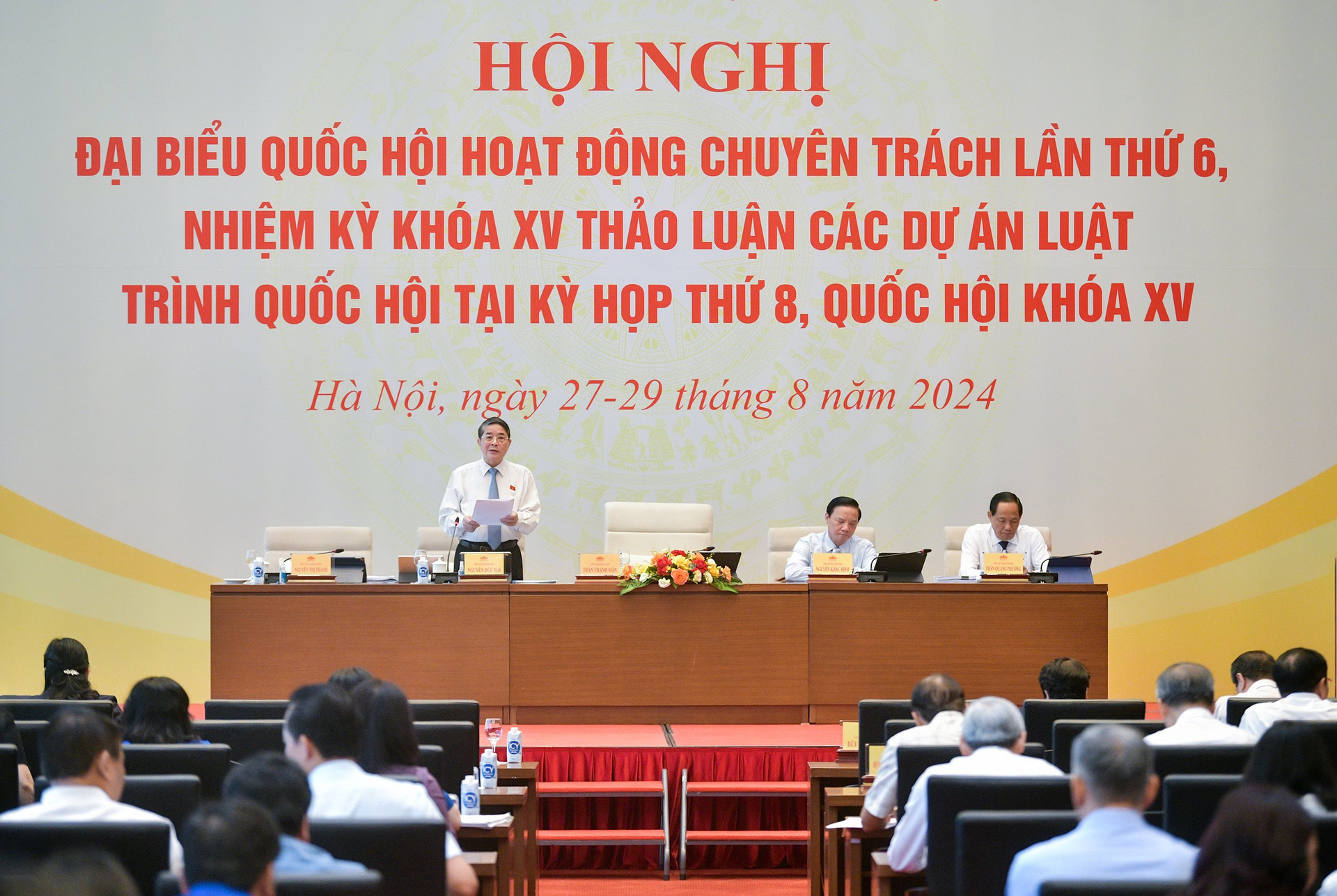
Within the framework of the 7th Session, on June 17, 2024, the National Assembly discussed in groups and on June 24, 2024, the National Assembly discussed in the Hall the draft Law on Value Added Tax (VAT) (amended). A total of 83 National Assembly deputies (NA deputies) expressed their opinions in groups and in the Hall (including 63 opinions discussed in groups; 20 opinions discussed in the Hall). The basic opinions agreed with the Government 's Submission and the Verification Report of the Finance and Budget Committee.
According to the 2025 Law and Ordinance Development Program, adjusting the 2024 Law and Ordinance Development Program, the draft Law on Value Added Tax (amended) continues to be discussed and considered for approval by the National Assembly at the 8th Session. Therefore, collecting opinions from specialized National Assembly deputies is an important premise for the National Assembly to discuss in order to ensure the quality of the Law project and its effectiveness when applied to real life.
Proposal to not include fertilizer products in the 5% tax rate
At the 6th Conference of full-time National Assembly deputies, the deputies focused on contributing opinions on the following contents: 5% tax rate; tax exemption and reduction to encourage the development of the cultural sector; responsibilities of taxpayers and tax authorities in VAT refunds and a number of other related issues...
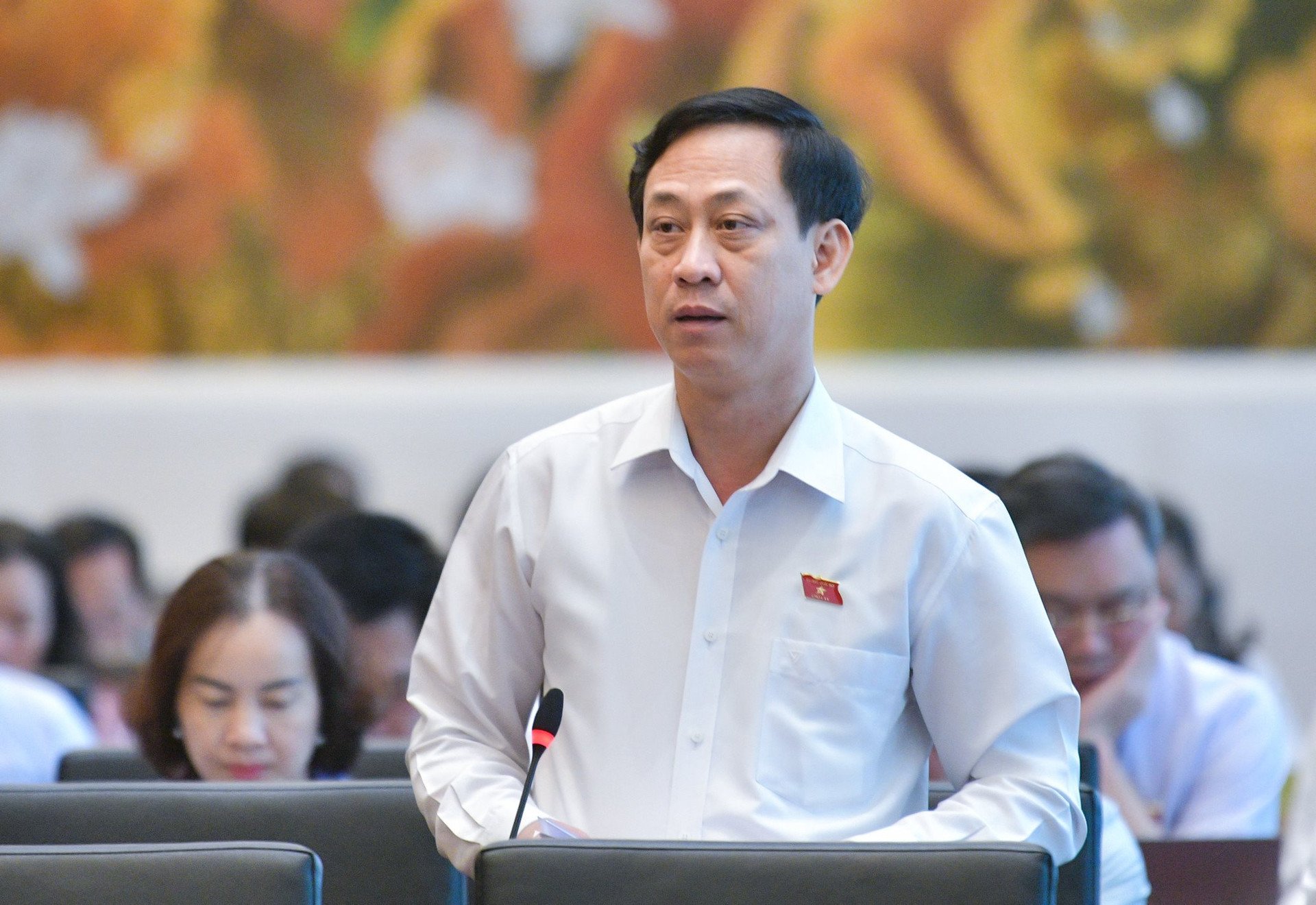
Delegate Mai Van Hai - National Assembly Delegation of Thanh Hoa province proposed to keep fertilizers, pesticides, machinery, specialized equipment for agricultural production, and fishing vessels from being exempt from VAT as currently regulated. The reason given is that VAT is an indirect tax, and the final consumer is liable to VAT. The change of fertilizers and pesticides to be subject to a 5% tax rate will have a major impact on farmers because the prices of these items will increase when the VAT (amended) takes effect, leading to an increase in the cost of agricultural products.
In addition, according to delegate Mai Van Hai, currently, the issue of mechanization in agricultural production in many places is still very weak, so in order for this sector to develop, there should be no tax on the purchase and sale of specialized machinery and equipment for agricultural production and fishing vessels.
Regarding the above content, delegate Duong Khac Mai - Deputy Head of the National Assembly Delegation of Dak Nong province said that if the current law is maintained, fertilizer production enterprises will not be able to deduct input VAT. This tax is calculated into production costs, so it will increase product prices, thereby reducing competitiveness compared to imported products. If fertilizer products are subject to VAT at a tax rate of 5%, it will resolve the problems related to input VAT refunds of enterprises. However, it is certain that increasing fertilizer prices will impact agricultural production and farmers' lives.
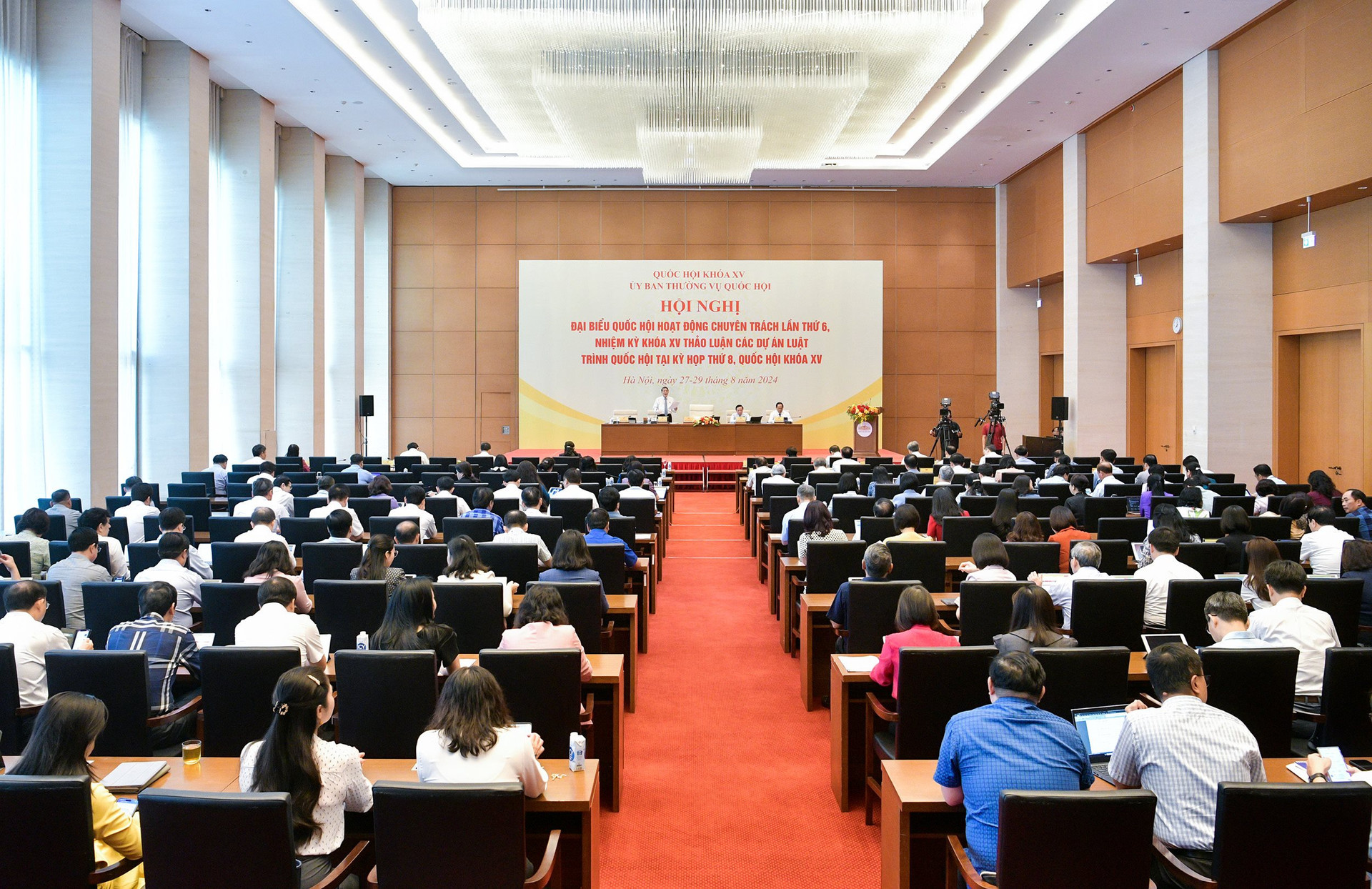
Although according to the report of the National Assembly Standing Committee, domestic fertilizer production enterprises reported that they would reduce prices, but according to the rules of operation of the market economy, this cannot be guaranteed to happen or not. Because the State cannot force enterprises to reduce fertilizer prices.
With the above reasoning, delegate Duong Khac Mai chose the option of keeping the current regulations - fertilizer products are not subject to VAT.
Tax exemptions and reductions should be made to encourage resource mobilization for cultural development.
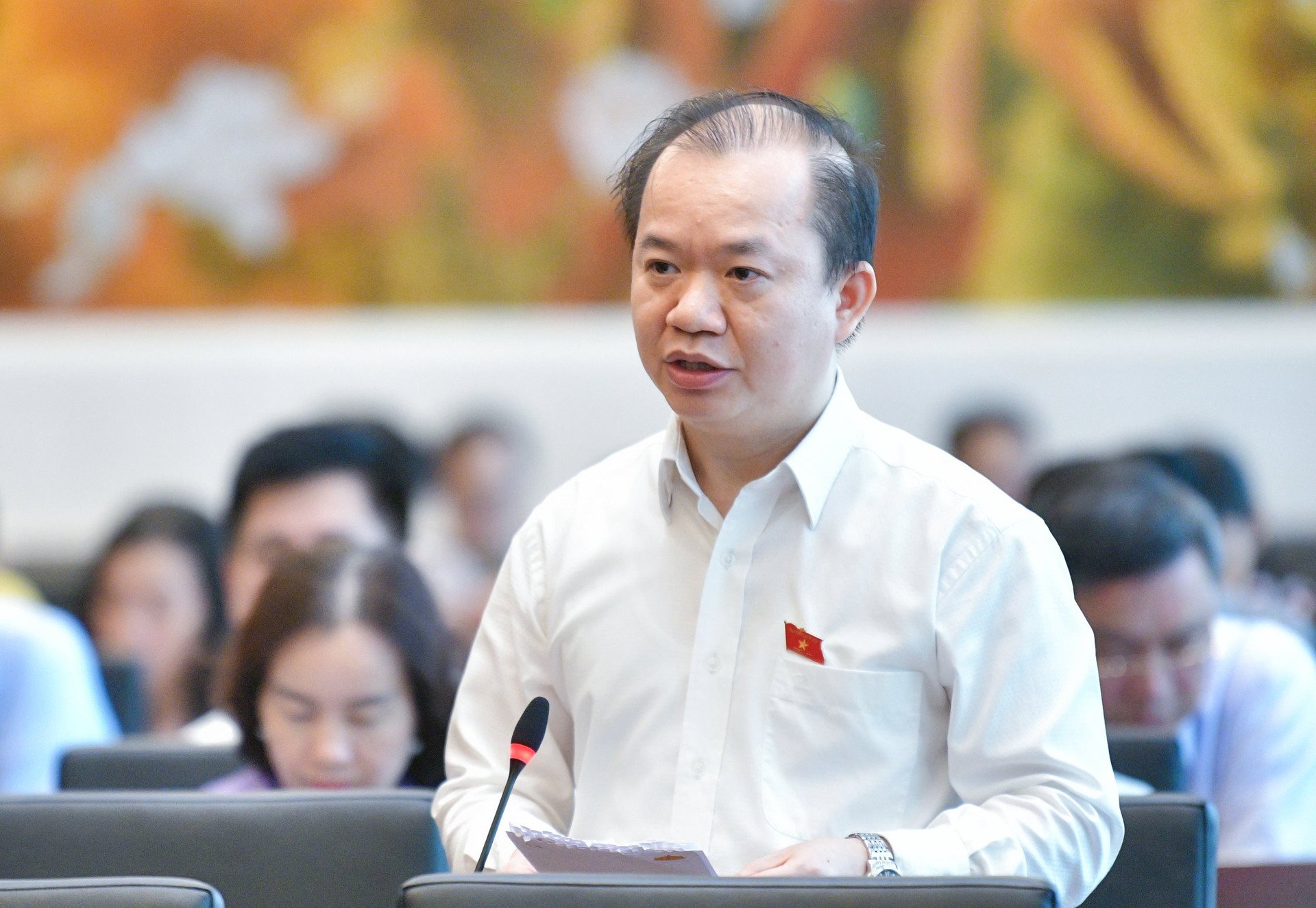
Contributing opinions on tax exemption and reduction to encourage the development of the cultural sector, delegate Bui Hoai Son - National Assembly Delegation of Hanoi City affirmed: Tax policy in general, VAT in particular, has great significance for cultural development. Even in some countries in the world, although there is no Ministry of Culture, but only by encouraging and motivating policies such as tax exemption and reduction, their cultural and artistic sectors have developed very well.
In our country, through many studies, conferences, and seminars, we have seen tax bottlenecks in supporting and mobilizing resources for cultural development. Therefore, tax exemption and reduction (or at least maintaining the tax rate) is a specific, practical, and sincere solution that we can do to develop culture, thereby creating conditions to revive social ethics and develop the country sustainably from culture. According to delegate Bui Hoai Son, although the draft Law on VAT (amended) this time has had a number of adjustments and amendments, there are still some shortcomings as follows:
Firstly, in Clause 12, Article 5, the capital contributed by the people and humanitarian aid to cultural establishments are still subject to tax. This does not encourage contributions from support sources for cultural development at the grassroots level. Therefore, the Drafting Committee of the Law should carefully study this content.
Second, point e, clause 26, Article 5, creating conditions for collectors and individuals to buy Vietnamese antiques from abroad, thereby proving national sovereignty over culture and history, preserving cultural and historical values of the nation should be encouraged. Therefore, import tax should be exempted for individuals. Tax should only be levied when they buy and sell antiques that are not from Vietnam, domestically or for export.
Third, in Article 9, cultural activities, exhibitions, physical education, sports, art performances, film production, film import, distribution and screening have been entitled to a tax rate of 5% according to the current tax law. These are areas that help improve people's spiritual life and deserve tax incentives. However, after many resolutions of the Party, policies of the State, and opinions of Party and State leaders that cultural development needs to be prioritized, we have implemented the opposite method of increasing the tax to 10%. Therefore, delegate Bui Hoai Son suggested that the Drafting Committee of the VAT Law (amended) review this content.
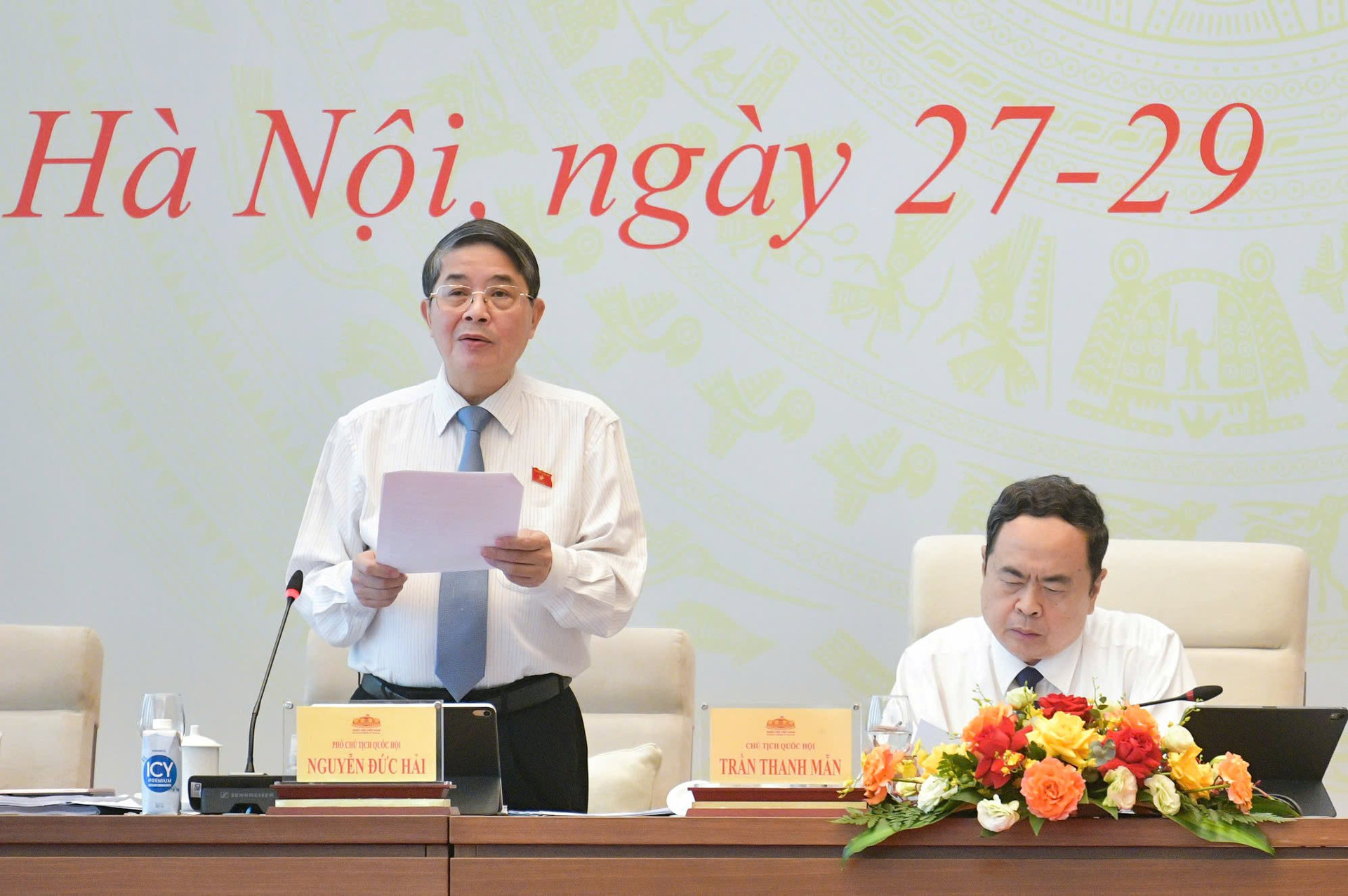
Concluding the Conference, Vice Chairman of the National Assembly Nguyen Duc Hai said: After a period of lively, enthusiastic and responsible discussions, 11 National Assembly deputies expressed their opinions and 2 rounds of debate. The National Assembly deputies all highly appreciated the working spirit and responsibility of the drafting and reviewing agencies and relevant agencies, and the close direction of the National Assembly Standing Committee in receiving and revising the draft Law. The National Assembly deputies agreed with many contents that were received and revised as well as contributed many more opinions to perfect the draft Law. These are very enthusiastic and responsible opinions that need to be carefully studied and need to continue to be clarified, carefully assessing the impact of providing information to the National Assembly deputies to reach an agreement between the drafting agency and the reviewing agency.
Vice Chairman of the National Assembly Nguyen Duc Hai requested the Secretary General of the National Assembly to synthesize the discussion opinions and send a report to the National Assembly deputies and relevant agencies for research, acceptance, explanation and completion of the draft Law. The National Assembly Standing Committee coordinates with the Government to direct the agency in charge of reviewing and drafting and relevant agencies to seriously absorb the opinions of the National Assembly deputies and the National Assembly delegations, agencies and organizations to continue to complete the draft Law in accordance with regulations to submit to the National Assembly for discussion and consideration and approval at the 8th Session.
Source: https://baotainguyenmoitruong.vn/dai-bieu-chuyen-trach-thao-luan-ve-du-an-luat-thue-gia-tri-gia-tang-sua-doi-379043.html


![[Photo] Binh Trieu 1 Bridge has been completed, raised by 1.1m, and will open to traffic at the end of November.](https://vphoto.vietnam.vn/thumb/1200x675/vietnam/resource/IMAGE/2025/10/2/a6549e2a3b5848a1ba76a1ded6141fae)





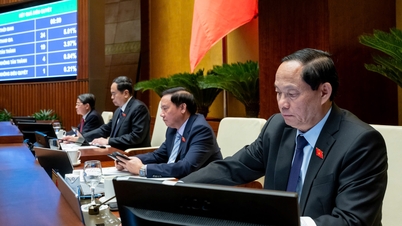





































































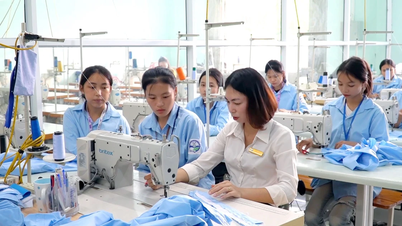
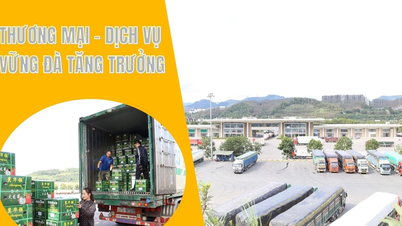
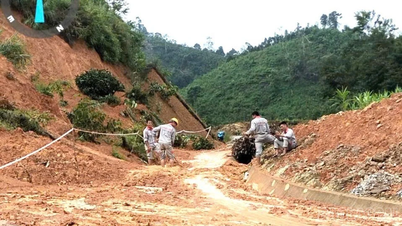
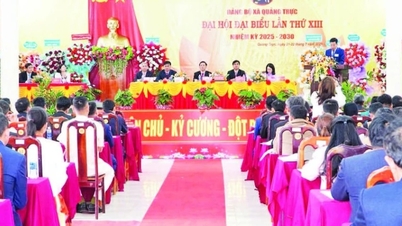















Comment (0)